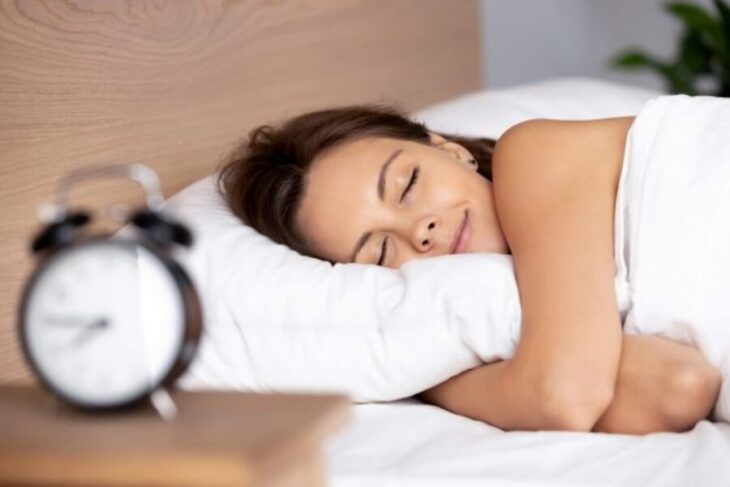Sleep, the essential daily ritual that rejuvenates our bodies and minds, plays a pivotal role in maintaining our overall well-being. As adults juggling busy schedules, responsibilities, and the demands of modern life, understanding how much sleep we genuinely need is crucial. Do We All Need The Same Amount Of Sleep?
In this blog post, we’ll delve into the science behind adult sleep requirements and provide practical insights to help you achieve a restful night’s sleep.
Table of Contents
How Much Sleep is Enough for Adults?

Adult sleep requirement should ideally get between 7-9 hours of sleep per night. However, it is estimated that at least 35% of adults are not getting enough slumber!
The likelihood of dying sooner among those who sleep fewer than 6.5 hours per night, or more than 9.5 hours per night, is higher than in people who sleep the recommended 7-9 hours per night.
What Factors Contribute to the Bad Sleep?
There are various factors that contribute to people not getting enough sleep., such as:
- Stress and anxiety can make it more difficult to fall asleep and stay asleep at night, among other things. [1]
- Factors such as keeping electronic devices such as phones, TVs, and tablets in the bedroom might keep you awake, as can other aspects of your lifestyle.
- Additionally, social jet lag, which occurs when people go to bed late and sleep in on weekends, but then go to bed and get up substantially earlier on weekdays, can have a negative impact on sleep. This gap in bed and waking times during the weekend compared to the working week is analogous to jet lag, which results in poorer sleep due to the weekend schedule.
If you don’t get 7 to 9 hours of adult sleep regularly, compare your weekday and weekend bedtime routines, and try to go to bed and wake up consistently during the week.
The Goldilocks Zone: Finding Your Ideal Sleep Duration
Much like Goldilocks seeking the perfect bowl of porridge, determining the right amount of sleep for yourself is about finding that “just right” balance. While the widely recommended range for adults is 7 to 9 hours per night, the ideal amount can vary based on factors such as age, genetics, lifestyle, and overall health.
Age-Defying Sleep: How Age Influences Adult Sleep Needs?
As we age, our sleep patterns evolve. Young adults and those in their prime may find 7-8 hours sufficient, while older adults might lean toward the 7-9 hour range. The key is to stay attuned to your body’s cues and adjust your sleep duration accordingly.
Mind and Body Restoration: The Science Behind Adult Sleep
Sleep isn’t just a passive state; it’s an active process that contributes to physical and mental restoration. During deep sleep stages, tissues repair, the immune system strengthens, and memories consolidate. Striking the right sleep balance supports cognitive functions, mood regulation, and even weight management.
Quality Over Quantity: Prioritizing Restful Adult Sleep
It’s not just about the hours on the clock; sleep quality matters too. Creating a sleep-conducive environment, practicing relaxation techniques, and adopting consistent sleep schedules can significantly enhance the quality of your sleep, making those hours more restorative.
The Price of Sleep Deprivation: Health Consequences
Skimping on sleep can have detrimental effects on your health. Chronic sleep deprivation has been linked to obesity, diabetes, cardiovascular issues, and compromised immune function. It can also impair cognitive abilities, reducing productivity and increasing the risk of accidents.
Tips for Adults Cultivating Healthy Sleep Habits
- Establish a Consistent Routine: Aim to go to bed and wake up at the same time every day, even on weekends.
- Create a Sleep-Friendly Environment: Keep your bedroom dark, quiet, and cool. Invest in a comfortable mattress and pillows.
- Limit Screen Time Before Bed: Blue light from screens can interfere with your body’s production of melatonin, a sleep-inducing hormone.
- Watch Your Diet: Avoid heavy meals, caffeine, and alcohol close to bedtime.
- Stay Active: Regular exercise can promote better sleep, but avoid vigorous activity close to bedtime.
Conclusion
Unlocking the secret to optimal sleep as an adult is a journey of self-awareness and healthy habits. By embracing the recommended sleep range, focusing on sleep quality, and cultivating effective sleep routines, you can harness the power of restorative sleep to fuel your days with vitality, productivity, and well-being.
Remember, a healthier and more fulfilling life begins with a good night’s sleep. Sweet dreams!
Don’t hesitate to get in touch with us if you have any questions or want to discuss our products and services. We can promise you that you have chosen the proper store that will save you money while providing you with guaranteed quality.























































